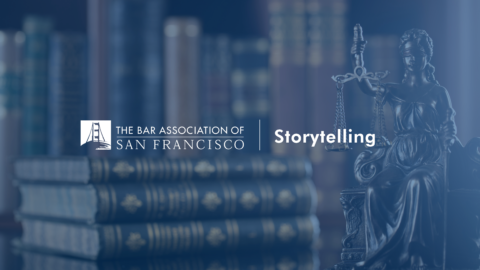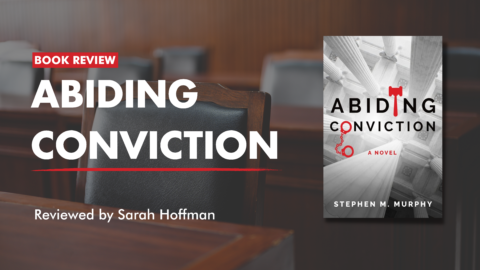This has been a year none of us expected. After so many months of doing things differently to minimize the risks of COVID-19, the memories of how things were at the beginning of the year, and last year, and the year before that, are starting to fade. The new normal is starting to seem just, normal. And many of us are much more comfortable on camera than we ever thought we could be, though I confess I long for an old-fashioned conference call where I don’t have to maintain eye contact with an image on a screen.

Challenging times provide an opportunity to confront important topics in new ways. This issue of San Francisco Attorney includes constitutional law themes with a focus on access to justice issues that are exacerbated in times of crisis. So, I wanted to dedicate this column to the hard-working staff of the Bar Association of San Francisco (BASF) and the Justice & Diversity Center (JDC), and our many volunteers, by highlighting just how much work they have been doing to promote access to justice during COVID-19 and to confront systemic problems. As I have noted before, BASF and JDC quickly pivoted to working remotely in March and began adjusting programming and advocacy to address the urgent problems of our times.
Of course, promoting access to justice is part of BASF and JDC’s missions—thus, many of our core programs do just that. The San Francisco-Marin Lawyer Referral and Information Service (LRIS) has been up and running even during COVID-19. Since 1946, LRIS has helped educate our community about their legal rights and has provided direct access to affordable, competent legal representation. JDC continues to provide access to justice to more than 9,000 low-income individuals and families annually, including with staffed self-help centers at the courts, direct representations, and advocacy for immigrant rights. Our Homeless Advocacy Project continues to provide much-needed service to San Francisco’s homeless population and to those at risk of becoming homeless. And JDC has continued to give law school scholarships to minority students. This summer, JDC awarded a historically large number of scholarships thanks to the generosity of our donors and supporters.
But BASF and JDC have done even more to promote access to justice since we began sheltering-in-place in March. There are numerous examples. BASF immediately began to provide valuable information on court closures and procedures, updating our website regularly with new information and hosting live programs with court leaders who could answer questions. BASF and JDC also launched programs to promote access to justice and to break down barriers that stand in the way of equal and fair treatment under the law. One of these programs, Essential Planning for Essential Workers, was launched in April to provide free wills and other essential life planning to workers considered essential during the COVID-19 pandemic. We expanded the program in June to include other essential workers, like grocery store employees, delivery drivers, public transit workers, teachers, and others. And in July, BASF hosted a Continuing Legal Education program to discuss COVID-19’s impact on the rule of law and access to justice around the world.
JDC’s Community Organization Representation Project launched a Racial Equity Partnership, which works together with the East Bay Community Foundation’s ASCEND:BLO Initiative and the Greenlining Institute’s Economic Equity Project, to provide streamlined access to much-needed pro bono legal support to Black-led organizations in California. The Barristers Club launched a Racial Justice Initiative, designed to help members educate themselves, study issues of inequity, and keep racial justice at the forefront. And to promote awareness of racial inequality following George Floyd’s death in May, BASF issued a 21-Day Racial Equity Habit-Building Challenge to its members, following the model established by diversity expert Dr. Eddie Moore Jr. More than 7,500 attorneys visited the challenge page.
BASF’s Criminal Justice Task Force has continued to work to break down institutional access barriers. The task force recommended steps for police reform and urged progress on policy implementations stalled by the San Francisco Police Officers Association’s lengthy meet-and-confer negotiations. These reforms include improvements to the body-worn camera policy, including a prohibition on officers reviewing body-worn camera footage in certain circumstances, as where there is any use of force by an officer. Executive Director Yolanda Jackson presented nationally to a peer group of bar executives interested in replicating the task force’s work in their own communities.
We have also used our collective voice to speak out on numerous issues during COVID-19. In March, BASF and JDC spoke out in support of immigrants and those under threat from the U.S Immigration and Customs Enforcement’s practice of making courthouse arrests. We recognized that ICE’s practice had a direct impact on access to justice, with the threat of deportation discouraging those most in need of justice from simply going to court. Undocumented immigrants who were victims of crime would be unwilling to take part in criminal proceedings. As California Chief Justice Tani G. Cantil-Sakauye stated in 2017, when fear of arrest prevents people from coming to court, it “undermines the judiciary’s ability to provide equal access to justice.”
Soon after shelter-in-place orders began in San Francisco, BASF and JDC sought urgent action to protect survivors of domestic violence and sexual assault in the face of court closures. We advocated for a moratorium on evictions, and we wrote to Governor Gavin Newsom regarding the release of elderly and medically vulnerable inmates. We have also weighed in on the impact of COVID-19 on the July 2020 Bar Examination and issued a statement on professional conduct in times of crisis.
This is far from an exhaustive list of what BASF and JDC have done to promote access to justice and equality as part of their core missions and in response to the COVID-19 crisis. As we continue to weather this storm and provide essential legal services to our community, I speak for everyone at BASF and JDC in thanking you for your continued support of these fine organizations.
About the Author:
Stuart Plunkett is a partner at Alston & Bird and the 2020 President of the Bar Association of San Francisco and the Justice & Diversity Center.





0 comments on “Finding Opportunity in Challenging Times”